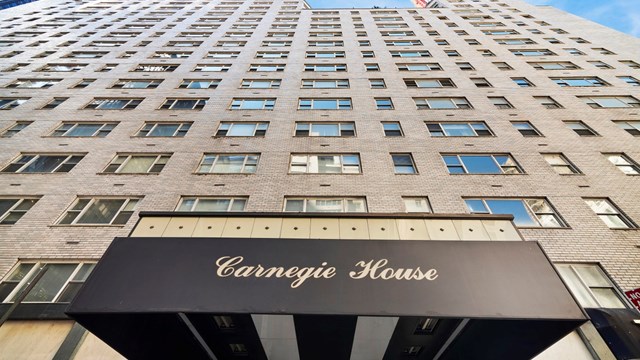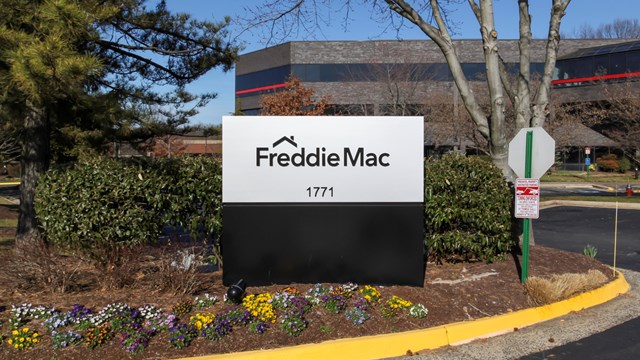
It’s the same dilemma that single-family households across the U.S. are facing: What bills need to be paid immediately and what bills can wait? And should we stretch ourselves thin, taking more out of our bank accounts to pay for private schools and that desperately needed vacation? Or should we cut back on restaurants and renovations to put more into savings? The same goes for co-op and condo buildings. While it may be tempting to delay payment on some bills, or delay expenditures on maintenance or needed repairs, in the long run this may end up costing far more than we ever realized.
Just as the federal government faced a serious financial crisis over the debt ceiling, which still rages today, boards face some very difficult decisions when it comes to what bills need to be paid, and what capital projects are most important. Questions arise such as, do we really need to fix the flashing on the roof right now, or can it wait a few months? The truth is that deferring a minor repair now may, in the long run, cost the building and the board a whole lot more.
There are many quick fixes that boards consider when faced with rising costs and static income. The most tempting is to prioritize and pay the bills that are the most important, while putting off other expenditures to a later date. This is a tempting “solution,” but it is one fraught with inevitable downsides and danger.
Another option, one that is much more prudent that boards may opt for, is raising revenue. This option has its downsides as well, with so many families living on tight budgets, they may not be able to pay an increase.
A third option is to levy a one-time assessment to all households in the community. This also may seem like a good solution, however, this is only a stop-gap measure usually reserved to pay for a major capital improvement such as roof repair or the installation of a new HVAC system.
There are options, but in today's tough economic times, how does a board know which option to embrace. How does a board prioritize what bills and expenditures are important and what aren't important? If the board is able to answer this question then it makes the decision-making process much easier.
First Things First
The first step is to figure out the basics: What bills must be paid? What is the cost of maintenance? What expenditures are ancillary? In other words, are there certain expenditures that are not necessary, such as weekly deliveries of flowers for the front desk? These are key questions that must be answered by the board.
Like most companies, co-ops and condos have two important, yet distinct budgets which allow boards and owners to manage the day-to-day and long-term financial requirements of their buildings, according to New York City architect Douglas Lister, AIA. “The operating budget includes recurring expenses such as salaries, taxes, utilities, insurance and maintenance items, while capital budgets are the long-term budgets that monitor building conditions. Capital budget items require a different kind of planning because the expenditures are infrequent and unfamiliar. Capital budgets allow more latitude and evaluation: You have to heat your building (operating expense), but you don’t have to replace the roof (capital expenditure) every year,” he says.
The board must always be cognizant of what's going on in the community, even something as minor as a crack in a hallway wall is something they should be aware of. That crack, if not repaired could become larger in time and the repair may cost much more if not taken care of immediately. An even worst case scenario: that hallway crack could be symptomatic of a larger maintenance issue and left on its own it could become a major maintenance headache.
These kinds of sudden emergencies always pop up. What happens when the boiler goes on the fritz, the roof springs a leak, the electricity bill rises or the common areas require new carpeting: you can't ignore the problem, you don't want to raise maintenance fees, or have a one-time special assessment. So how does a board plan?
“They should be receiving every month a financial statement from whoever’s managing them that gives for that past month—actual vs. budget, as well as year-to-date, actual vs. budget,” says Jules Frankel, CPA, MBA, a shareholder at Wilkin & Guttenplan, P.C., a certified public accounting firm which has offices in New York and New Jersey. “And with the property manager they ought to be identifying areas that may be going awry.”
Boards should review their expenditures very closely, agrees Philip Miller of the Manhattan-based accounting firm of Miller & Cusenza, P.C. If there are ancillary costs that are cutting into three months worth of operating costs, they should be looked at with an eye to cutting or eliminating that cost.
“Boards should review their budgets continuously. Every month they get a management statement. On the statement, it breaks it down for one month, for two months, for five months. The statements should account for any discrepancies between the budget and the actual every year. The budget is a feedback tool,” Miller says. “It enables people to see if they're on track or not. They should look at it every month, and see that they are in line with the budget to some degree. You'll have periods when you aren't. For example, you won't have a lot of fuel expenses in July, but you will in January or February. Even though it's an annual budget there are fluctuations that you need to account for.”
Not the Best Option
The two major downsides to deferring bill payment are; one—in the long run it will damage the building or the association's credit and; two—eventually the bills have to be paid, and the bills will have increased. By not prioritizing bill payment and reining in monthly expenditures a board may have no option but to increase maintenance fees, or impose a special assessment. In this case, the board is being forced to do exactly what it wanted to avoid.
Boards must remember that there are rules in place to make sure the maintenance fees and other charges don’t increase too high or too often. What maintenance charges or special assessment fees can be imposed by a board or association, really depends on what the community’s legal and governing documents say, according to Frankel.
“Depending on how the documents are drafted there are some that have a percentage limit increase, (very few), and there are some that require that the board can determine the passing of a special assessment, and there are others that the community has to have some involvement in either a special assessment or sometimes a capital assessment,” Frankel says. But that’s a minority, the vast majority of times the board can do it, but you have to look at each building’s or association’s documents, he notes.
Miller concurs, that a co-op should look to its offering prospectus, (the black book), and other governing documents to determine what is allowed. “For capital improvements, there could be a cap,” he says. “Sometimes you need to have authorization from shareholders or unit owners on how much you can increase it by, but generally speaking, no. Capital projects can be a very expensive proposition. If you re-plumb a building it could cost more than your whole annual maintenance. The theory is they'd like to give unit owners or shareholders some overview over something like that. It could be a tremendous cost, and shareholders or unit owners might want to force the board to look at alternatives,” Miller says.
Sticker Shock
To avoid shocking unit owners with an assessment or fee increase out of the blue, most legal and management experts advise boards to keep their residents informed throughout the year of the increases in the operating budget, and what the board is trying to do to rein in costs. The board can do this through newsletters, a website, a personal letter from the board president and via financial reports. As long as homeowners read their governing documents and attend their board or association's yearly budget meeting, they will understand the financial health of their building community.
Most increases are the result of capital repairs, delinquent unit owners, foreclosure and price increases for insurance or other expenses—and if this is explained clearly and honestly to the shareholders or unit owners, there will likely be less push-back when the time comes to reduce amenities, or impose an increase or special assessment. Make sure to invite the shareholders and unit owners to e-mail the board with further questions or with clarifications of any of the points they may not completely understand. Better yet, invite them to serve on the board itself, or on the budget or financial committee.
Planning Prevents Surprises
When asked if the budget should be automatically increased each year, most experts say it depends on the circumstances. Miller answered in the affirmative, because, “there will always be contingencies,” he explains. People tend to procrastinate, and put things off, but building in a budgetary increase is a good thing to do. But, he adds, “it's very rarely done because of the fact that people don't want to pay for things. They just don't want their maintenance to go up. They want to run and hide, and people always look for alternatives to these things.”
Frankel says it depends on a number of factors. An operating budget usually contains things like payroll, common area electric charges, utility and heating costs, insurance, some of which may be fixed expenditures. In New York, what some of the buildings usually are doing are putting together five-year capital plans and depending on what the landscape looks like for the next several years and whatever major capital projects they have, that, says Frankel, “will determine if they increase their budget or pass a special assessment for a certain period of time.”
For example, if your building is currently paying $100 per week for landscaping, and the next year, it still will cost $100 per week, then there would be no immediate need to tack on any extra costs to the shareholders or unit owners. Of course, if the price of the landscaping goes up, a board could either decide to cut into the three months of operating cash to pay the landscaper; they can increase maintenance fees, or perhaps, come up with a more creative solution such as turning a flowerbed into a concrete area to decrease the cost of landscaping; or at last resort, negotiate with other landscapers and sign a new contract.
Risking a Special Assessment
If the board doesn't get expenditures under control and continues to defer bills until balances rise and then suddenly that crack in the hallway wall becomes a dangerous hazard, the board may be faced with the distasteful option of imposing a special assessment.
Special assessments are usually reserved for financing a major capital project. Unlike maintenance increases, special assessments aren't necessarily predictable. There’s no cap on how much they can be, and depending on the reason, they may cost a relative small fortune for the homeowners. A special assessment can only be requested if there’s a sudden infrastructure issue, such as a broken roof, a faulty balcony or window that may become dangerous if not replaced. Frankel said it depends on what the emergency situation is. If a building’s boiler suddenly broke down, and needed to be replaced, and money was not set aside for it, a board may not have to take out a separate loan because the boiler may last for 20, 30 or 40 years.
Deferring expenditures can be a risky proposition, say the experts. “It depends on the nature of the improvement,” says Miller. “If you're going redo your hallways, it's not as necessary as redoing your roof, which could be leaking all over the place. With waterproofing,” Miller notes, “they can't do it because of Local Law 11,” the city’s façade inspection law which requires all buildings over six stories high to examine their exterior walls every five years. “Anything that a local engineer says has to be done, really does have to be done, they can't defer those. If there's loose bricks or something, but they don't consider it to be in an immediate hazardous position, they might not have to do it the first time around, but according to New York City law, they would have to do it the next cycle,” Miller says.
Ensuring Safety and Property Values
One instance to never defer, says Frankel, is when the issue is public safety. Also the primary fiduciary responsibility of the board is to protect property values. But, in some places where property values are low, deferring an expense may not make a difference, he says. In other places, defer that expense, and the community or building doesn’t look the way you want it to look, you will directly impact your property values.”
Miller counters, that yes, “there would be times that deferring would make sense. If buildings get hit particularly hard from a lot of capital improvements or a huge maintenance increase, then yes, many boards will defer it to give unit owners or shareholders relief. Should they defer it? No, you really want your building to be in perfect shape, but you know it's a political situation. You have to consider your unit owners or shareholders.”
And according to the legal pros, those dangers go beyond the obvious ones to life and limb. If an owner is injured as a direct result of deteriorated property, both the association and the individual members of the board could be potentially liable. So even if it seems like a good idea to hold off on repairs or maintenance projects in the name of thriftiness during a tough economic patch, doing so could come back to bite board members where it hurts.
On the other hand, residents also want—and require—a building that functions well and is safe. Residents not only want their home well-maintained, but, equally as important, residents want a building that is well-managed. A smart homebuyer will look at how the board handles the budget and what the reserves are.
Final Thoughts
If the board is finding it more and more difficult to pay the monthly bills and the board has decided that a fee increase is not an option then the board will have to make some very tough and possibly unpopular choices. One option might be to reduce amenities if the board wants to avoid falling behind in expenditures and avoid increasing fees. Boards must remember though that if a resident is promised a certain amenity when buying into a co-op or condo, the board will have a hard time legally and practically doing away with the perk.
Above all, the most important and effective tool a board can utilize is communication. Everyone realizes the downsides and implications of deferring bill payment but residents have to be kept in the loop. Informing all residents of the budget process is key to garnering support and will in the long run help the board if it does have to reduce amenities, eventually raise fees or impose a special assessment. There are both good and bad ways to go about explaining these options to residents. Most importantly never defer paying a bill, what may seem like a quick way to balance the checkbook, may end up costing more than anyone ever realized.
J.M. Wilson is a freelance writer and a frequent contributor to The Cooperator. Managing Editor Debra A. Estock and Editorial Assistant Tom Lisi contributed to this article.






Leave a Comment